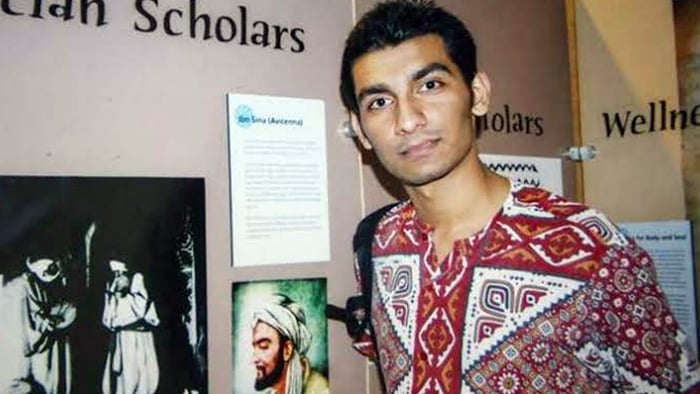University lecturer Junaid Hafeez sentenced to death over blasphemy charge
Police had accused Hafeez of running and disseminating blasphemous content from a Facebook page
MULTAN: A district court on Saturday sentenced academic Junaid Hafeez to death on the charge that he had committed blasphemy.
Hafeez, a 33-year-old Fulbright scholar who was employed as a lecturer in a Multan university, was accused of committing blasphemy in 2013. The charges against him included “liking” an allegedly blasphemous Facebook page.
Hafeez’s lawyer criticised the death sentence by saying that it was 'most unfortunate' and that his client will appeal the decision.
The sentence was announced under Sections 295-A, 295-B and 295-C of the Pakistan Penal Code.
Section 295-A deals with "deliberate and malicious acts intended to outrage religious feelings of any class by insulting its religion or religious beliefs," Section 295-B concerns the "Defiling, etc., of Holy Qur'an", whereas 295-C deals with the "use of derogatory remarks, etc., in respect of the Holy Prophet."
The court, in its short order, wrote that all sentences handed to Hafeez shall run consecutively and the accused will not be entitled to the benefit of Section 382-B (reduction of period of sentence of imprisonment) of the Criminal Procedures Code "because in case of blasphemer, this court has found no circumstances for taking lenient view and it is also not permitted in Islam".
Police had accused Hafeez of running and disseminating blasphemous content from a Facebook page. However, the page had remained active even after fourteen months of his arrest.
After legal experts refused to take up Hafeez’s case, the Multan coordinator of the Human Rights Commission of Pakistan (HRCP) Rashid Rehman decided to represent the university lecturer.
Rehman had filed a petition with the Lahore High Court (LHC) to shift the case to Lahore from Multan. Rehman had said that the environment of fear and intimidation in Multan had forced him to make the request.
The LHC had turned down the petition by stating that there was “no material in support of the apprehension expressed on behalf of the petitioner” and asked Rehman to seek protection from Multan police.
In 2014, Rehman was found shot to death by assailants.
"The prospect of Hafeez getting even a semblance of fair trial came into question when his counsel Rashid Rehman was brutally murdered inside his chambers," Hafeez's family said in a written statement issued after the verdict.
"Those involved in the murder were never apprehended. Rehman's murder resulted in a wave of fear, putting off other lawyers from taking up his defence.
"The failure to apprehend those who shot Rehman dead signalled impunity for other would-be vigilantes. Could any judge in such circumstances take the risk of doing justice? Those who could were transferred from the district or brought under pressure by groups of lawyers operating as mafias," the family said.
"An appeal in the high court will be filed soon against the verdict and hope that justice will be served without delay," it said.
"In five years, at least eight judges have heard Hafeez’s case, making a fair trial virtually impossible," the HRCP wrote in response to the verdict.
"Meanwhile, he [Hafeez] has undergone six years’ imprisonment in solitary confinement. Aasia Bibi, who was charged similarly, was acquitted after eight years’ incarceration. There are grave implications here for access to justice in such cases.
"HRCP reposes its faith in the higher judiciary and hopes that the verdict will be overturned in appeal."
-
Security forces gun down 30 terrorists in multiple IBOs in KP: ISPR
-
MQM-P calls for new province in Sindh
-
US report validates Pakistan military edge over India: PM
-
Banned TTP poses serious threat to Pakistan security: UNSC panel
-
CM Afridi clarifies remarks on by-poll after ECP requests army deployment
-
Dubai sees 3.2m Pakistani passengers in 2025 as airport sets new milestone
-
Security forces kill 23 Indian proxy terrorists in KP's Kurram
-
Pakistan to construct island to boost oil exploration: report












